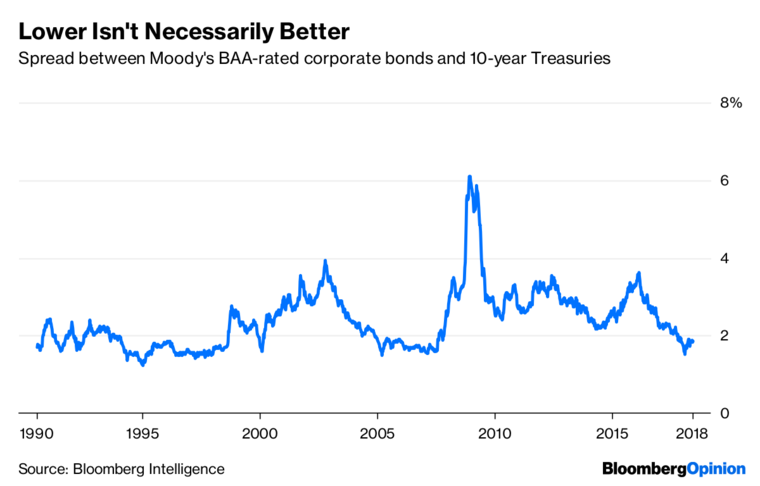Reaching for marginally more yield in corporate debt and equities, while taking on much higher capital risk, is dumb money management. And yet, it continues to be the consensus financial recommendation.
Today, because BAA-corporate bonds have been indiscriminately bought at high prices, their yield spread or net income benefit compared with much more liquid and secure, US 10-year government treasuries. is less than 1.9%. As shown in the chart below, this yield spread is the lowest it has been since 2006 when it fell to a foreboding 1.6% . That was just before the Great Recession spiked defaults and cut the market price of corporate securities in half. See: Will corporate debt cause the next recession.
Rather than pay down debt and build up savings during the extended boom of the last decade, every level of the economy–governments, corporations and households have done the opposite–expanding debt and leverage while dwindling cash reserves. This makes the majority ill-prepared for the coming downturn in the economy, financial and realty markets.
It also means the buying opportunity ahead, for the few who have gone against the consensus and prepared themselves to be counter-cyclical, is likely to be larger this time than historically average. This video clip touches on some of this further.
DoubleLine chief executive Jeffrey Gundlach explains why he is cautious on corporate bonds, the dangers of an expanding deficit and what the next recession might bring. Here is a direct audio link
.



